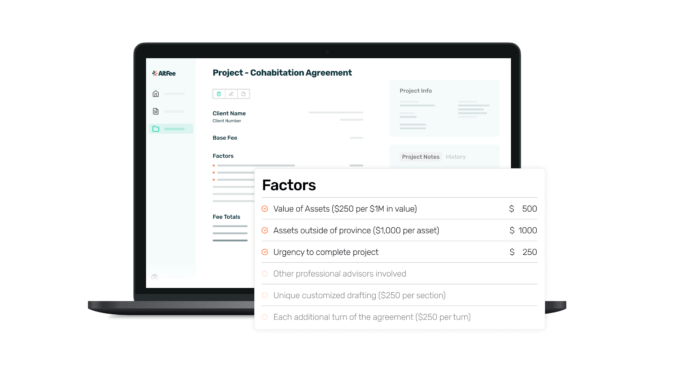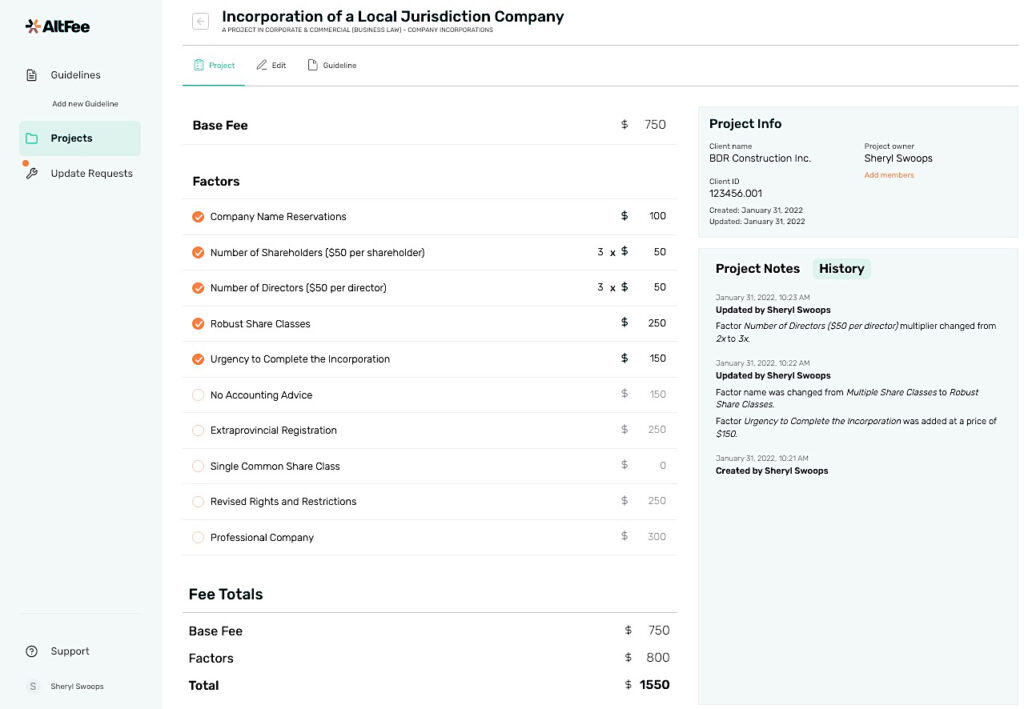
AltFee is a new legal tech startup with a focus on helping lawyers to scope out fixed fees – which in turn could boost realisation rates and profitability, the company says.
Artificial Lawyer spoke to founder Scott Leigh about the startup, which at present is aimed at small-to-medium-size law firms, but could be used by much larger ones.
First, how it works. Put simply what it does is help you to create a ‘recipe’ of work items that will go into a matter; to apply your firm’s pricing guidelines; and build in checklists to make sure you don’t miss key aspects of a job. The end result is a transparently formulated fixed fee, with all the data mapped out for all to see.

You can also add in people’s experiences and insights from across the firm in a collaborative way to help with the scoping.
‘It gives more confidence to people who have not scoped before,’ explained Vancouver-based Leigh.
(And perhaps this is a reflection of where things are still, i.e. that scoping in advance what you will do for a client is a venture into the unknown for many lawyers.)
The greatest value of the software comes from the cumulative effects of refining this data in the digital dashboard. As you use the software and keep scoping out similar matters your ability to get more accurate pricing for what you do for clients will improve. And this in turn could boost your profits.
I.e. If a client wants a so-called ‘Alternative Fee Arrangement’ (AFA), then the firm is in a pickle if it doesn’t know how to price things beyond the usual time-based ‘how long is a piece of string?‘ approach.
But, let’s face it, a large part of most AFAs is still basically repackaged estimations of billable hours needed. Mistakes there hurt realisation and profits. But, get it right and you get paid what was agreed, and lawyers’ time is not wasted, thereby supporting your targeted profit margins.
Now, this site would argue that while AltFee is dealing with ‘the world as it is today’, it’s more of an intermediate fix. So, not a revolution – but more of an evolutionary step.
Artificial Lawyer put that point to Leigh. His view is that for many lawyers, even thinking in terms of fixed fees is so problematic that AltFee’s supportive approach is necessary to help them start to make those changes, even if ultimately this remains based upon time-based legal economics.
Overall then, AltFee is moving things in the right direction, using a positive approach to drive change. Or, as Leigh concluded: ‘[Working like this] forces efficiency and then firms can make better profits.’
Maybe this is the way we will have to go to arrive at real change?
–
And here is a quick overview of what AltFee helps a law firm to do:
- break down all of their work into specific projects with factors that are common for those project types,
- use those project guidelines to help facilitate healthy scoping and pricing conversations with clients,
- customise their guidelines over time to ensure recent learnings are being incorporated into future scoping & pricing conversations,
- collaborate with colleagues to price with confidence, and
- maintain a record of all priced projects.